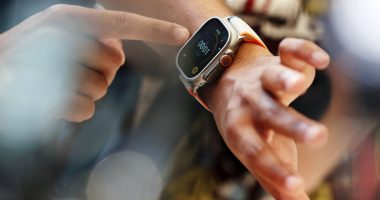

“The risk assessment that you do in GRAS is for food use. You’ve never looked at the safety of the supplement uses, but you’re using one to boot-strap the safety of another,” said Laura MacCleery, policy director of the Center for Science in the Public Interest, a nonprofit watchdog that advocates on behalf of consumers on food-related issues. The Center for Science in the Public Interest is one of five organizations currently suing the FDA over the legality of the current rule, which was finalized in 2016.
The FDA maintains that it “can question the basis for an independent GRAS conclusion, whether notified or not,” or even if the notice is withdrawn. And by 2016, the FDA was on Quincy’s case again. Internal emails exchanged by FDA employees that year, obtained by WIRED through FOIA, indicate that by then, a “synthetically produced product being marketed in the form of a shake” was under investigation by the FDA as a potential unapproved food additive.
The agency sent a letter to Mark Underwood dated January 7, 2016, regarding NeuroShake’s ingredient apoaequorin. “We are concerned about the safety of your apoaequorin products because of, among other things, the large numbers of adverse events reported for them,” Steven Musser, the FDA’s deputy director for scientific operations, wrote. He noted that Quincy appeared to be contradicting itself in its public statements: The company’s GRAS self-determination explained that apoaequorin was safe because it was digested like other dietary proteins, but materials marketing Prevagen claimed it could pass through the gastrointestinal system and cross the blood-brain barrier. Musser asked Underwood to explain how both things could be true, and what evidence Quincy had that its ingredient was both safe and effective.
WIRED did not obtain any response the company sent to the FDA about the letter from Musser under FOIA. When asked about the letter directly, the Quincy spokesperson said, “Apoaequorin is GRAS, whether it is in a food like Neuroshake or a dietary supplement like Prevagen. And as previously stated, the FDA issued a close-out letter to Quincy Bioscience which the FDA only issues when, based on its evaluation, the firm addressed the issues identified in the Warning Letter to the FDA’s satisfaction.”
Over 4,000 complaints and counting
Quincy Bioscience’s NeuroShake move appears to have worked well for Quincy in one regard: When FDA investigators showed up in Wisconsin for another inspection in 2016, they were back to evaluating the company for supplement manufacturing practices, not drugs.
The company had undergone some changes, too. During the previous inspection, Quincy management had attributed having a higher proportion of complaints than other manufacturers to all their outbound sales calls, because during calls employees would ask, “How are you feeling?” After the inspection, Quincy discontinued its direct sales strategy and laid off members of its sales team, including Shawn Andrus.
“They just basically severed ties with direct sales,” Andrus said. The layoffs constituted 13 percent of Quincy Bioscience’s staff at the time, according to a complaint an employee filed to the Wisconsin Attorney General’s Office, obtained by WIRED with a FOIA request. (The state determined that no violation occurred.)
A year and a half later, in November 2016, FDA inspectors observed a “noticeable decrease” in the number of adverse event reports Quincy received after they stopped the calls. By that point, the company had received well over 4,000 reports from customers who said they experienced health issues after using its products since they first went on sale, according to the documents WIRED obtained from the FDA.
To understand the meaning of that, the total number of people who took Prevagen should also be considered, Durkin said. “For any particular situation the number of adverse events might sound high, but then you have to step back and say, OK, how many people actually took the product and of that number what was the rate of adverse events,” he said. It’s unclear how many people had taken Prevagen by 2016. That number has been estimated to be three million as of 2020, by lawyers representing a Prevagen customer in Florida.








